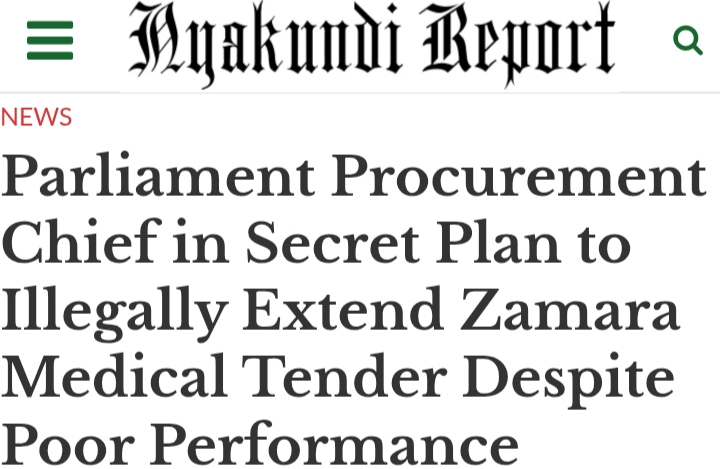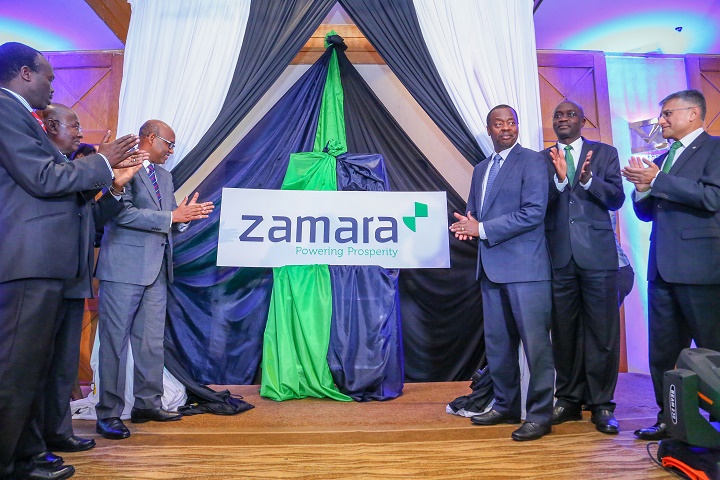Deep inside the corridors of Parliament, tension is growing as a corruption scandal takes shape involving a senior procurement officer accused of attempting to unlawfully extend a medical insurance contract with Zamara.
The revelation, brought to light by a whistleblower, has placed the officer at the center of an investigation that could shake the institution’s credibility. The whistleblower’s detailed complaint, submitted to the Ethics and Anti-Corruption Commission, claims that the officer abused his position and attempted to bribe a staff member in a scheme to bypass open tendering procedures.
According to insiders, the move appears to be a deliberate plan to keep Zamara as the medical insurance provider despite its poor performance.
The company has reportedly failed to meet key service standards, including delays in claim payments and unresponsive customer support.
Employees and Members of Parliament have in the past raised complaints, questioning why the same firm continues to be considered for contract renewal instead of being subjected to fair competition.
The report suggests that the procurement head offered a cash bribe to a parliamentary insider to support the illegal extension.
When the insider declined and reminded him that the act violated the Public Procurement and Asset Disposal Act, the officer allegedly continued to push the plan forward in secrecy. It is said that he is now lobbying senior administrators to approve the extension under the excuse of “saving time,” a justification procurement experts have dismissed as a cover for corruption.
Documents circulating within Parliament show that the current contract with Zamara is almost ending.
However, instead of launching a new competitive process, the procurement officer has been trying to disguise the renewal as an “administrative continuation.” Such language, experts note, has been used in other government departments to conceal backroom deals and avoid scrutiny.
The whistleblower recounts a meeting where the bribe was offered and later documented the entire encounter, warning that it amounted to a criminal offense. Despite this, the officer appears unmoved, reportedly confident that his political links will protect him from any repercussions.
This has fueled public concern that corruption in procurement offices continues to thrive due to weak oversight and a culture of impunity.
Governance experts say the case mirrors a wider problem in Kenya’s public procurement system where officials manipulate rules to favor certain firms. They argue that this undermines the spirit of fair competition, wastes public money, and discourages honest officers who try to uphold the law.
The whistleblower has requested protection, fearing retaliation for exposing the scandal. Several staff members have reportedly been aware of the plan but remain silent due to intimidation and threats to their jobs.
Civil society and transparency advocates have urged the EACC to take swift action, warning that failure to do so will only embolden corrupt officers in public institutions.
Calls are now growing for Parliament to suspend the procurement officer while investigations continue. There is also increasing pressure on EACC to audit the entire Zamara contract and trace any financial transactions linked to the alleged bribery.

Many see this as a test of Kenya’s commitment to integrity in public service and the enforcement of procurement laws.If proven true, the scheme would not only expose a major breach of the Public Procurement and Asset Disposal Act but also reveal how deeply corruption has taken root even in the highest offices.
Whether accountability will follow remains uncertain, but the unfolding scandal has already become a powerful reminder of the urgent need for transparency and responsibility in managing public resources.





















Add Comment